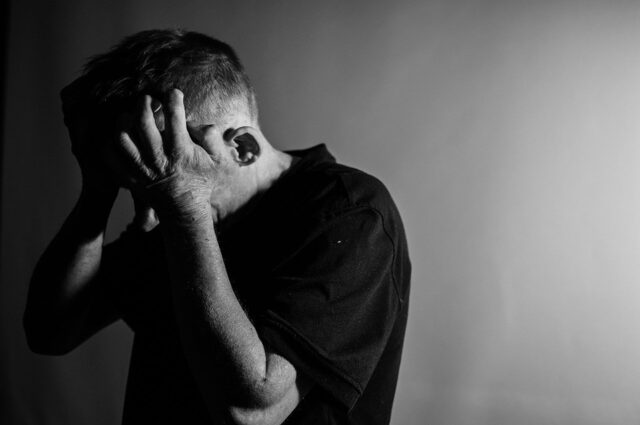
“Though no one can go back and make a brand new start,
anyone can start from now and make a brand new ending.”
– Carl Bard, U.S. writer, editor, and poet
This is Ray’s story, and it begins when he was younger. A carefree teenager, in fact.
Ray was a lot like any teenager growing up in the suburbs of Seattle. However, he was also one of the best athletes at his school, was considered somewhat of a class clown by his teachers, and was never short of dates with the prettier girls there. He had a reckless streak too when the mood took him.
If anyone had been keeping a close eye on Ray, they would have seen that his popularity at school and among his friends wasn’t matched in his own home. With two older brothers always putting him down, and an alcoholic father whose idea of a conversation involved removing his belt first, Ray’s home life was pretty tough. His mother tried to stand up for him as much as she could, but Ray wasn’t the only one his father took a belt to.
Ray was destined to excel at whatever he chose to do in the future, but for one thing – that reckless streak of his invariably got him into trouble, and, after a while, he stopped caring about the fallout of his actions – at school and when he got home.

It wasn’t long before he started self-medicating with illegal substances, either prescription opioids he stole from his grandparents’ medicine cabinet or the pills that were always being circulated around the places he hung out in the evening and at weekends.
Ray started hanging around with a new and very different set of friends. His grades started to suffer, his sporting performance, and the motivation that usually accompanied it, declined significantly, and, all of a sudden, those “prettier girls” started giving him a very wide berth, refusing his calls and texts, and blanking him in school corridors.
It just made him worse, and, before long, he started experimenting with the different substances he could get his hands on. His new friends were able to get him anything he wanted, and Ray wanted…
Surprisingly, Ray survived school, managed to get his grades up a little (the wonders of study drugs like Adderall…), and went on to college, where he knuckled down and did reasonably well. His substance abuse continued unabated, however, and he started drinking too.
A few years later, and Ray had become what they call a “high-functioning alcoholic.” He’d turned his back on the drugs, and found that the far cheaper alcohol did the trick he wanted – to blot whatever out. He got good at it too.
Ray had a well-paid job, his own apartment, and hands that shook like crazy first thing in the morning, until, of course, he’d had his morning’s “vodka breakfast.” Not long after a promotion at the company where he worked, Ray crashed and hit his rock bottom. He still had that reckless streak, which, unfortunately, wasn’t the most ideal trait in the company boardroom or the darkened bars he started frequenting until the early hours.
So, one inevitable day, Ray was fired for gross insubordination (insulting the company’s executive officer, and the guy’s wife too), left and got very drunk, and then rounded off his day by getting seriously assaulted in an alley by his latest downtown bar of choice. An ambulance took him directly to ICU, via the ER.
During his stay in ICU, Ray underwent a medically-assisted detox from alcohol and immediately began his addiction treatment in the form of an Intensive Outpatient Program (IOP) near his home in Seattle, at the behest of his hospital consultant… Because of the apartment and other commitments he had, his ex-employers, after hearing of his plight, agreed to help – they kindly kept his job open, allowing him to work when he wasn’t with his outpatient program, and all that his therapy entailed.
4 Reasons Why Outpatient Rehab Worked Best

For Ray and many others in a similar situation, outpatient rehab proved to be the best option available. Residential rehab places, although admittedly proven to be the most effective and successful way of getting clean and sober (and staying that way), are restrictive places to be, especially when you need to be somewhere else.
However, outpatient programs for dealing with substance abuse issues are successful too. The critical point appears to be this: If you truly wish to put an end to a life of addiction, to get clean and sober, and to learn a new way of living, an outpatient program will work. Getting your head in the right place, once you initially become sober, is a significantly large part of being able to stay that way.
According to definingwellness.com, outpatient rehabs can cater to certain individuals who get great moral support from their friends and family members. These people are homesick and do well in an environment where the rehab work is complimented by the presence of near and dear ones. When such individuals are placed in a residential rehab facility, they tend to think that they have lost support and are all alone with complete strangers. This can have a detrimental effect on their development and impede the rehabilitation process.
Here are the 4 reasons why outpatient rehab worked best:
5The Same Treatment as Regular Residential Rehab
Patients in outpatient programs receive exactly the same treatment as those in residential rehab. As an outpatient, you receive:
- One-to-one professional therapy sessions
- Behavioral therapy
- Family therapy
- Group sessions and support
- Psychiatric care (and medications, if required) for co-occurring disorders*
- Holistic activities, such as therapeutic yoga, mindfulness, experiential therapy, and grounding techniques
- Relapse prevention practices, and
- Educational classes and skill-building activities
*Co-occurring disorders are where a patient has both a substance use disorder (SUD) and a mental disorder, such as depression, anxiety, a personality disorder or PTSD. Ray is an example of this.
4Maintaining Financial & Other Commitments
For those who have work or family commitments, outpatient programs can add the necessary flexibility with your time that you need, enabling you, for example, to continue working full- or part-time, and still being able to receive the addiction treatment you need.
3Getting Sober in Your World
One advantage of an outpatient program that is often overlooked (and which was particularly beneficial to Ray) was this – you get sober in your world. Although this may not work for everyone, and addicts, just like people, are decidedly unique, it clearly worked for someone like Ray.
Actually going to work (and being at work) 100% sober was a refreshing, confidence-building experience for Ray, as well as all the other regular stuff that needs to be done (it’s doubtful the local supermarket cashier had ever seen Ray when he was sober,for example).
Furthermore, “your world” has all the things that used to affect the addict in a negative way, and undergoing those things sober and supported by the outpatient program is exceptionally beneficial.
2More Affordable than Residential Rehab

Cost is always an important factor, if not the overriding one – even deciding for you where you attend your addiction treatment. By choosing an outpatient program, you are far more likely to have all your health insurance costs from the outset. As ever, it is always best to check out what will be covered when you undergo this kind of treatment.
Ray: A Different Man
Ray now… What’s he like? Is he still 100% clean and sober, like he was when the outpatient rehab in Seattle concluded? Read on…
Ray officially got clean and sober the first day of his detox – that was October 19, 2015, over 4 years ago now. Ray is still 100% clean and sober. Just how close he has ever come to a relapse, during that time, no-one knows, except for Ray and maybe his therapist.
If he has come close to one, he says it was everything he learned during his outpatient program that has kept him safe – the tools to stay clean and sober, the behavioral therapy he received, and knowing the real importance of a strong support network.
Outpatient Addiction Treatment

Speak to Ray, ask him how he found a lasting recovery from his substance addiction in Seattle, and he’ll have no hesitation in replying with just 3 words… “Evergreen Drug Rehab.”
This is a treatment that could be a reference to what should an addiction treatment program have. Northpoint The Evergreen, its official title, has 2 outpatient drug and alcohol rehab treatment centers – located in Bellevue, Washington, and Northgate, Seattle. Both facilities offer a full range of professional outpatient services:
- Outpatient Program (OP): Requiring a weekly commitment of 6 hours
- Intensive Outpatient Program (IOP): Requiring a weekly commitment of 10-15 hours, and
- Partial Hospitalization Program (PHP): Requiring a weekly commitment of 30 hours
All of these programs offer the full range of services* previously described:
- One-to-one professional therapy sessions
- Behavioral therapy
- Family therapy
- Group sessions and support
- Psychiatric care (and medications, if required) for co-occurring disorders*
- Holistic activities, such as therapeutic yoga, mindfulness, experiential therapy, and grounding techniques
- Relapse prevention practices, and
- Educational classes and skill-building activities
One should always look for a mix of activities and services like this if they are looking for help.







